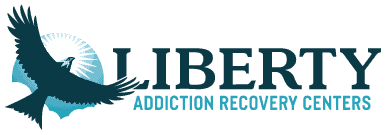Most people who struggle with addiction don’t just wake up one day and decide to get clean. Recovery is a process that requires time, effort, and commitment. In fact, most experts agree that addiction recovery follows a series of stages that people must work through in order to achieve lasting sobriety.
The Stages of Addiction Recovery
Addiction recovery is a process that takes time and effort to complete. It’s not something that can be done overnight, or even in a few weeks. In order to be successful, it’s important to understand the different stages of addiction recovery and what is required in each stage.
There are four main stages of addiction recovery:
1. Denial
2. Acceptance
3. Action
4. Maintenance
The first stage, denial, is when people are in denial about their addiction. They may not believe they have a problem, or they may be in denial about the severity of their addiction. This is often the longest stage of addiction recovery, and it’s important to get help during this stage.
The second stage, acceptance, is when people realize they have a problem and need to do something about it. This is often the shortest stage of addiction recovery.
The third stage, action, is when people take steps to recover from their addiction. This may include going to treatment, attending support groups, and making lifestyle changes.
The fourth stage, maintenance, is when people work to maintain their sobriety. This may include attending support groups, seeing a therapist, and taking medication.
It’s important to remember that addiction recovery is a process, and it takes time.
How The Stages of Addiction Recovery Begin
The first stage of addiction recovery is usually detoxification. This is when the person struggling with addiction stops using drugs or alcohol and allows their body to rid itself of the harmful substances. Detoxification can be a difficult and uncomfortable process, but it’s often necessary in order to start the recovery process.
After detoxification, many people enter into a treatment program. This may involve inpatient or outpatient care, and it typically includes some form of behavioral therapy. Treatment can help people to understand the underlying causes of their addiction and to develop healthy coping skills.
The third stage of addiction recovery is usually aftercare. Aftercare typically involves continued counseling and support, whether through 12-step programs, therapy, or other means. It’s important to have a solid aftercare plan in place in order to avoid relapse and to maintain sobriety in the long-term.
The first stage of addiction recovery is often referred to as the “honeymoon” phase. This is when people first decide to get sober and are full of hope and excitement about the prospect of turning their lives around. They may make a commitment to abstinence and start attending 12-step meetings or therapy sessions.
Addiction Recovery Phases
However, the honeymoon phase doesn’t last forever. Sooner or later, people in recovery will start to experience cravings and urges to use drugs or alcohol again. They may also start to feel depressed or anxious. This is known as the “trough” phase of addiction recovery, and it can be very difficult to get through.
However, it is possible to get through the trough phase and make it to the other side. The key is to stay committed to your sobriety and to seek out help when you need it. There are many resources available to help you through this difficult time, so don’t be afraid to ask for help.
The step after the trough phase is known as the “recovery” phase. This is when people start to feel better mentally and emotionally. They may start to see improvements in their relationships and their careers. They may also start to feel more hopeful about the future.
However, it’s important to remember that recovery is a lifelong process. There will be ups and downs, and there is no such thing as a “cure” for addiction. But with commitment and hard work, recovery is possible.
If you or someone you know is struggling with addiction, it’s important to remember that recovery is possible. It may take some time and effort, but it is definitely worth it in the end. With the right support, anyone can overcome addiction and achieve lasting sobriety. There are many people who understand what you’re going through and can help you get to the other side of recovery. Remember, addiction recovery is a journey, not a destination. Don’t give up, and keep moving forward one day at a time.
No One-Size-Fits-All Approach to Addiction Recovery
There is no one-size-fits-all approach to addiction recovery, as the process requires a unique set of steps that vary depending on the individual. However, most experts agree that addiction recovery generally proceeds through a series of distinct stages, each of which must be addressed in order for treatment to be successful.
Types of Treatment at Liberty Addiction Recovery Center
Liberty Addiction Recovery Center offers a variety of treatment options, all of which are designed to help our clients overcome addiction and achieve lasting sobriety. We offer both inpatient and outpatient care, as well as a variety of different therapies, such as:
- Gender-Specific Group Therapy
- Individual Psychotherapy/Counseling
- Moral Reconation Therapy (MRT)
- EMDR and ART
- Cognitive Behavioral Therapy
- Rational Emotive Behavior Therapy
- Emotion-Focused Therapy
- Motivational Interviewing (MI)
- Dialectical Behavioral Therapy (DBT)
- Seeking Safety (And Other Trauma-Focused Therapies)
- AA 12 Steps and LDS 12 Step Program
- Spirituality
- Recreational Activities & Experiential Learning
- Self-Care
Will you go through all of these therapies? No. The services you receive will be dependent on your needs preferences, and the level of care you require.
A key distinguishing characteristic of Liberty’s Residential, Day and Outpatient Treatment Addiction Therapy Programs is the focus on helping each client recognize and find solutions to the underlying cause of the addiction.
This is achieved by identifying, assessing and treatment of a client’s Co-Occurring Mental Health Issues by the Company’s Board Certified Psychiatrists, Psychologists and other appropriately licensed mental and family health therapists in addition to treating the individual’s addiction.
The following is an overview of some of the addiction therapy treatment modalities available at Liberty, with other modalities also called upon depending on the needs and preferences of the client.







